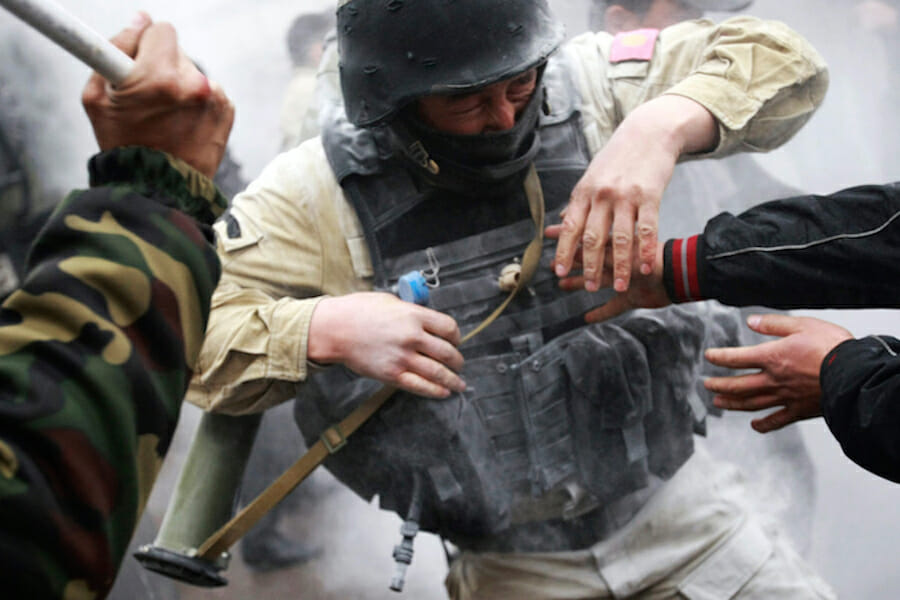
Culture
Kyrgyzstan’s Moment to Move Past Regional and Ethnic Divides and Realize Unity
Kyrgyzstan recently commemorated the fourth anniversary of the violence that shook its southern region in 2010. Back then, over 100,000 Uzbeks had to leave Kyrgyzstan and seek refuge in Uzbekistan in the aftermath of the violence. It all started as a simple brawl between Kyrgyz and Uzbek youngsters in a casino in the city of Osh.
Shortly thereafter, it took the form of full-fledged ethnic violence. Many issues were highlighted by the violence: Kyrgyzstan’s ever-subtle struggle for power and resources between the elites of Bishkek and their southern counterparts from Osh and Jalalabad, and acute economic inequality between different communities, especially in southern Kyrgyzstan.
Going Back to 2010
April 2010 witnessed a revolution in Kyrgyzstan that eventually led to the elimination of the then President Kurmanbek Bakiyev. Since Bakiyev was a southerner, the Kyrgyz elites of the north saw this as an opportunity to re-establish their control over the country, and for that matter, they sought and gained support from the Uzbek community.
The southern Kyrgyz elites, for their part, mobilized the masses in their region, mentioning the ‘alliance’ between their northern counterparts and the Uzbeks. The general Kyrgyz populace of the country, especially the uneducated youth from the countryside of southern Kyrgyzstan, sided with the southern Kyrgyz elites and considered the Uzbeks disloyal citizens of the country for having supported the northerners.
The modus operandi here was simple: one side of the fence sought and gained support from the minority, whereas the other side inculcated nationalist feelings and viewed the minority as a disloyal diaspora.
Unfortunately, this intra-elite fight soon evolved into inter-communal violence. Human Rights Watch reported that hundreds were killed, and over 400,000 people were displaced, and the role of the police and state machinery was not praiseworthy. Had monetary interests not been at stake (Osh is one of the major drug hubs of Central Asia, and serves as a key point for Afghan heroin on its way to Europe and Russia), the violence would have led to even greater casualties in southern Kyrgyzstan.
The Present Day
Four years later, the underlying issues that led to the violence in 2010 still exist — poverty, unequal distribution of wealth, poor political representation of minorities, corruption, and elite intrigues. As a matter of fact, the surge in Kyrgyz nationalism has singled out the Uzbeks as the culprits of the violence, and even the country’s judiciary has labeled the Uzbek minority unpatriotic.
On a more positive note, the current president, Almazbek Atambayev, has noticed the widening gap between the different sectors of society, and he has been trying to keep things together. In fact, in April 2013, President Almazbek convened a “Concept on strengthening national unity and inter-ethnic relations in the Kyrgyz Republic,” aimed at promoting nationalism as well as multilingualism, coupled with reconciliation, between the Kyrgyz and Uzbek masses.
However, the concept has not achieved many concrete results. For instance, the scars of the 2010 violence are still fresh, and mutual suspicion among people still affect the harmony of Kyrgyzstan. Amidst all this, the elites of both northern and southern Kyrgyzstan are preparing for the upcoming Parliamentary Elections (scheduled to be held in 2015) as well as the Presidential Elections (to be held sometime in 2017). Quite obviously, appealing to nationalist sentiments can offer political impetus, and as such, ethnic hostility does not seem to be fading away anytime soon.
Appraisal
On the occasion of the fourth anniversary of the 2010 violence, the Grand Mufti of Kyrgyzstan, Maksatbek Hajji Toktomushev, made a welcome gesture by urging all clerics of the country to focus their sermons on mutual reconciliation and harmony.
It is obvious that Kyrgyzstan’s current atmosphere of impunity is alienating the masses from each other. For the betterment of Central Asia in general and Kyrgyzstan in particular, both the Kyrgyz and Uzbek people need to reconcile their differences and move forward towards peace and unity.

